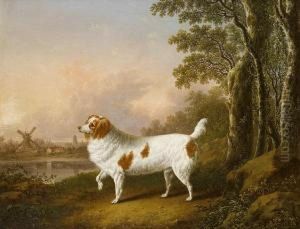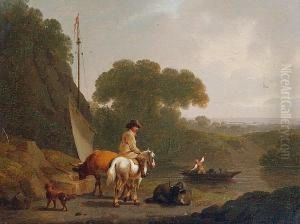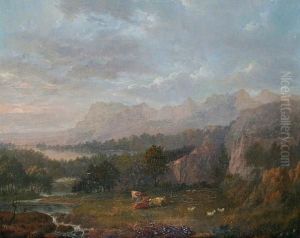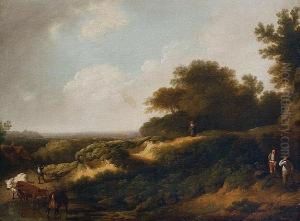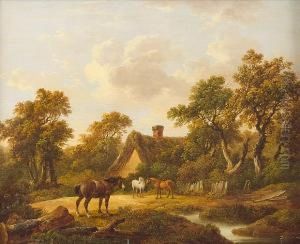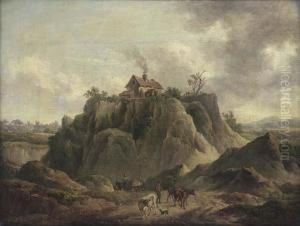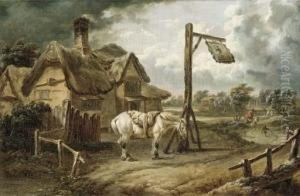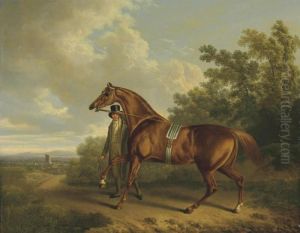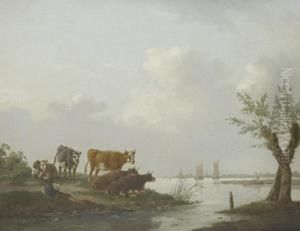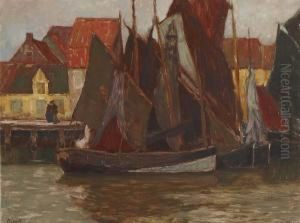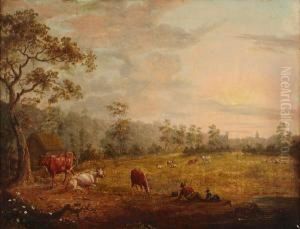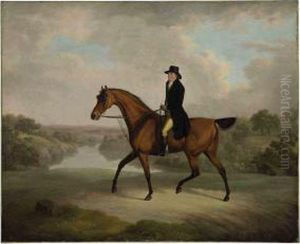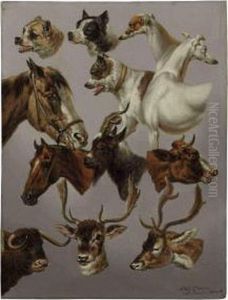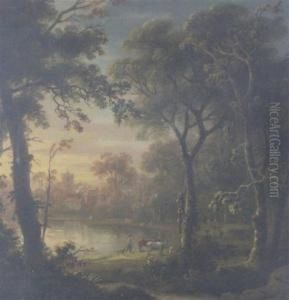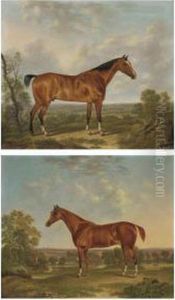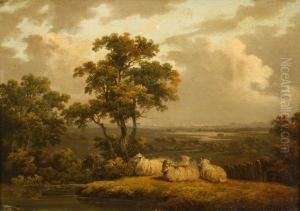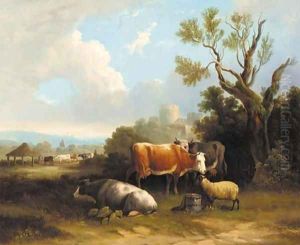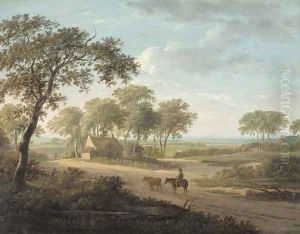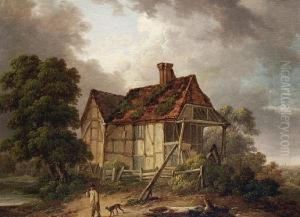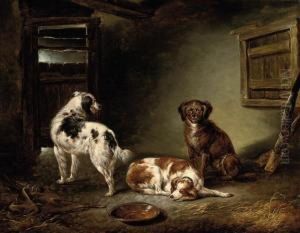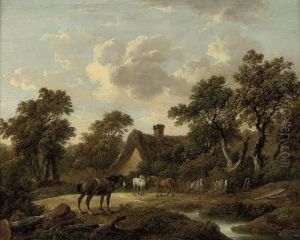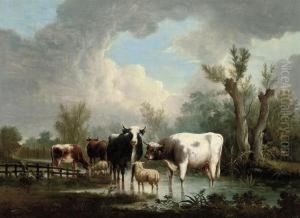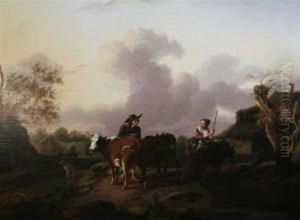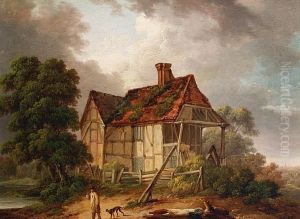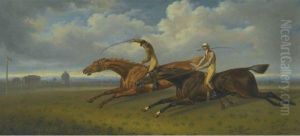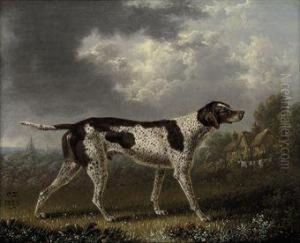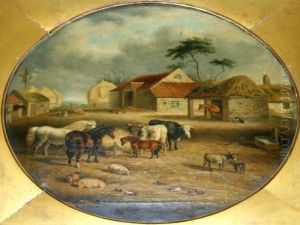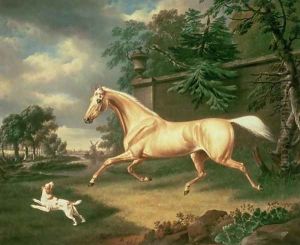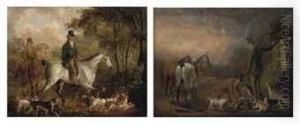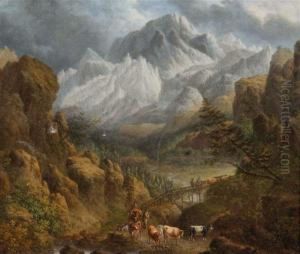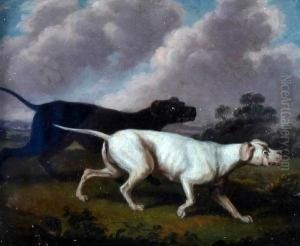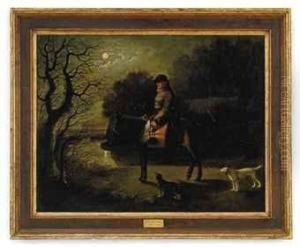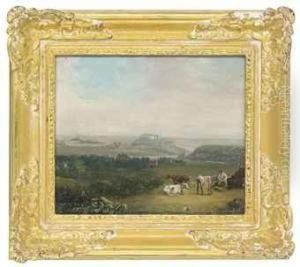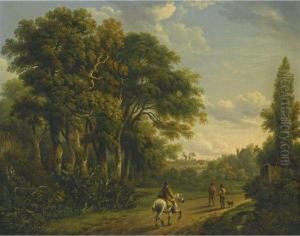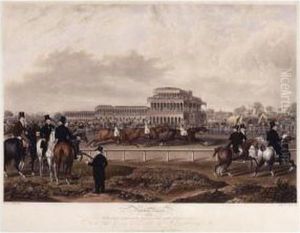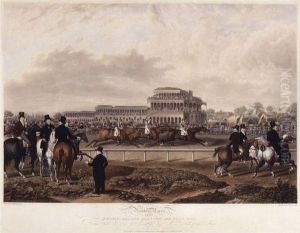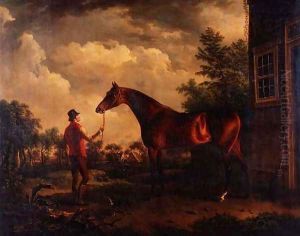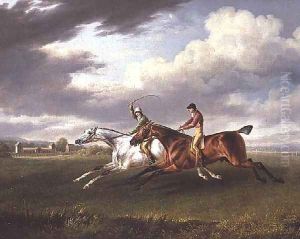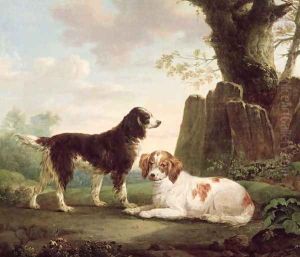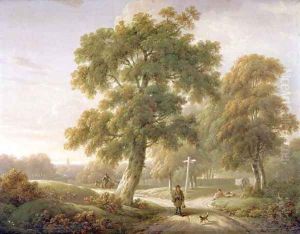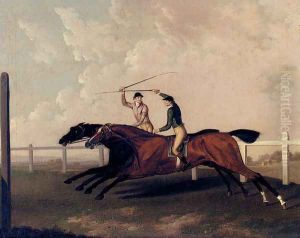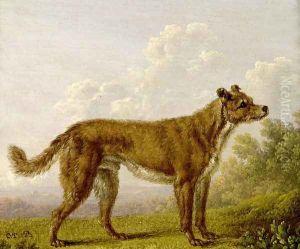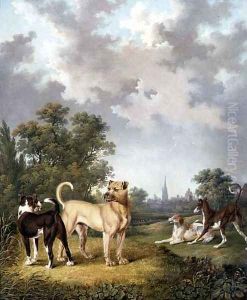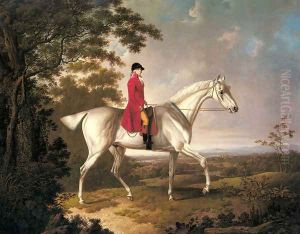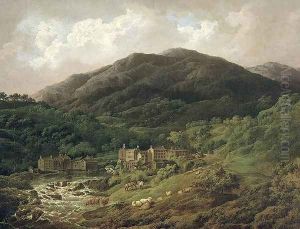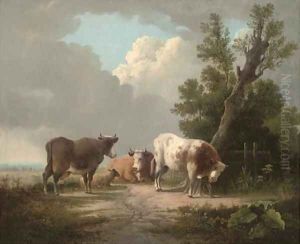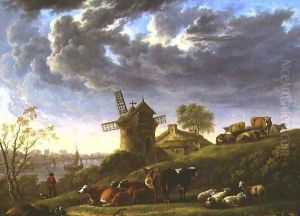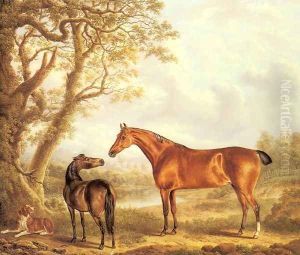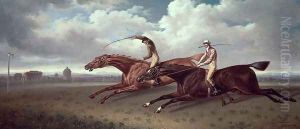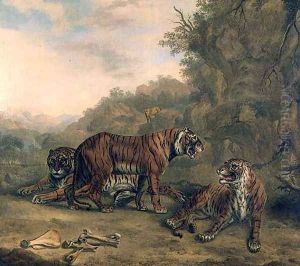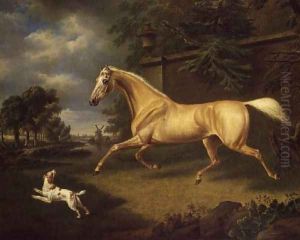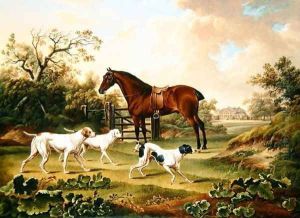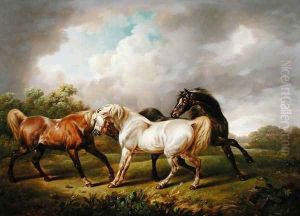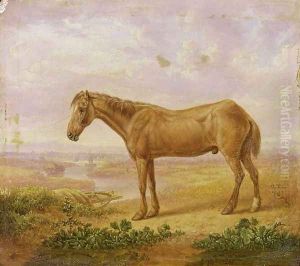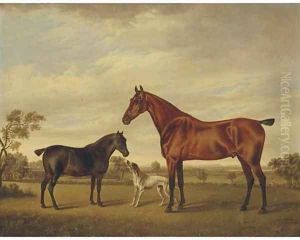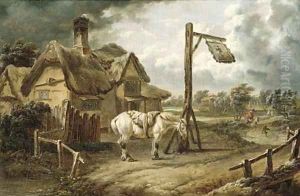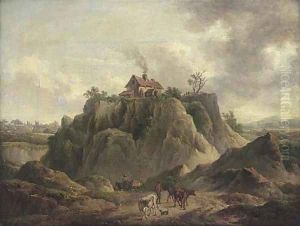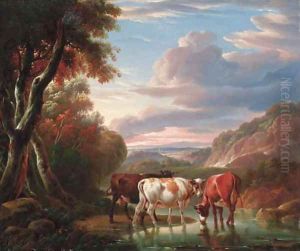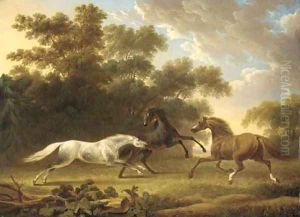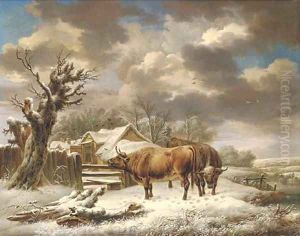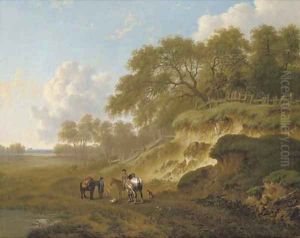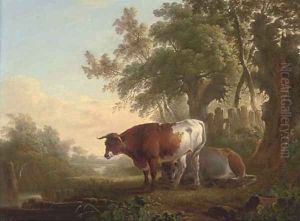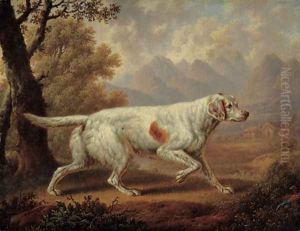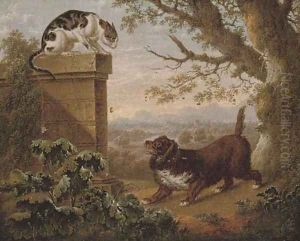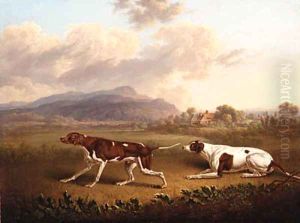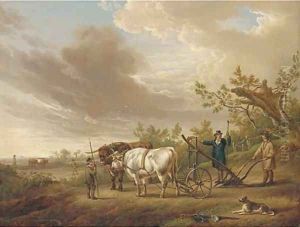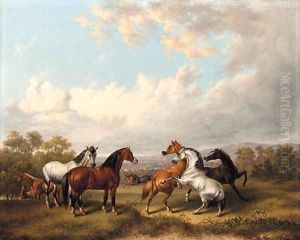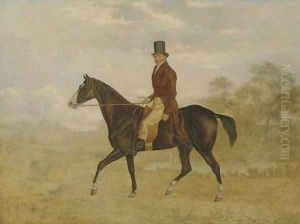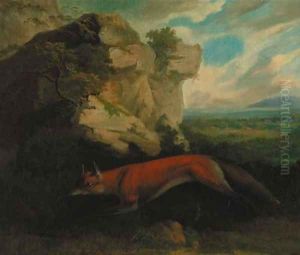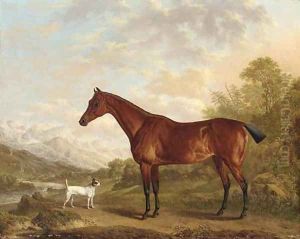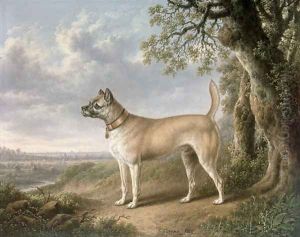Charles Towne Paintings
Charles Towne, born in 1763 in Wigan, Lancashire, England, was an English painter renowned for his remarkable contributions to animal and landscape paintings during the late 18th and early 19th centuries. His artistic journey began at a young age, showing an early inclination towards painting animals and rural scenes, which later became the hallmark of his career. Despite the limited information on his early life and training, Towne's talent became evident through his works that captured the essence of the English countryside and its inhabitants with a remarkable sense of realism and detail.
Towne moved to Liverpool around 1785, a period when the city was thriving as a commercial hub. This move proved pivotal for his career as he found a wealth of subjects to paint, from the bustling port scenes to the serene landscapes of the surrounding areas. His ability to capture the dynamic spirit of Liverpool, combined with his exquisite portrayal of animals, especially horses, dogs, and cattle, garnered him considerable acclaim. During this time, Towne also engaged in teaching, sharing his skills and knowledge with aspiring artists.
In 1807, Charles Towne briefly relocated to London, seeking to expand his opportunities and audience. Here, he exhibited at the Royal Academy and the British Institution, where his works were well received, further establishing his reputation. Despite this success, Towne returned to Liverpool in 1810, where he continued to produce a prolific number of paintings, drawing inspiration from the local landscape and life.
Throughout his career, Towne exhibited a versatility in his work, experimenting with different styles and subjects. However, he is best remembered for his animal paintings, which not only demonstrate his technical skill but also his ability to convey the character and essence of his subjects. His landscapes, often imbued with a serene beauty, reflect a deep appreciation for nature.
Charles Towne's contributions to the art world were not limited to his paintings. He played a significant role in the artistic community of Liverpool, mentoring young artists and contributing to the development of the arts in the region. Despite his considerable output and influence, Towne remained relatively modest about his achievements.
Charles Towne passed away in 1840, leaving behind a rich legacy of work that continues to be admired for its beauty, technical skill, and portrayal of rural England. His paintings are held in various collections and museums, serving as a testament to his talent and the enduring appeal of his work. Towne's dedication to his art and his ability to capture the essence of the English countryside and its animals have secured his place in the history of British art.
